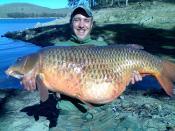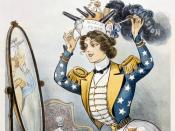In the 1890s the United States was occupied with settlements of the West since there were a lot of vacant lands to be discovered. Meanwhile, the idea of expansionism loomed in many people's minds. At the same time, many opposed this concept. Naval Captain Alfred Thayer Mahan and Colonel Theodore Roosevelt supported expansionism since they knew this would ensure the United States would be a world power. The United States seemed to have empirical interests throughout the world.
Cuba which was under Spanish colonization was just beginning a revolution. The revolution was caused by the harsh ways the Spanish treated the Cuban natives. For the most part, the American people were in favor of the U.S. going to war and helping the Cuban natives get their independence. After finding out what Dupuy de Lome, the Spanish minister to the U.S., said in a letter which made several insults to President McKinley and the mysterious explosion of the USS Maine that killed over two-hundred and seventy troops, war was declared on Spain.
The Spanish-American War was for the most part a lopsided victory for the U.S. Although five-thousand troops were killed, only four-hundred were due to Spanish bullets. The rest of the deaths were from diseases that were incurred. In Cuba, the Rough Riders led by Theodore Roosevelt swept through the land and defeated the Spanish in the very well known charge of San Juan Hill. In the Philippines, Commodore George Dewey crushed Spanish opposition. The war lasted a little over a hundred days. This war is considered to be the most popular of all American wars.
"Progressive Impulse"
Between the Spanish-American War and World War I a new movement called progressivism was in full effect. The Progressives believed in mainly reform. They wanted to represent the common person. During this...


